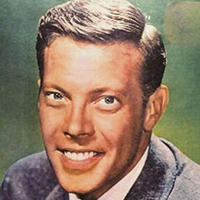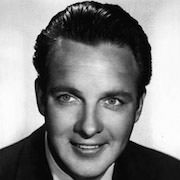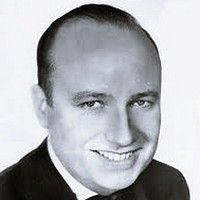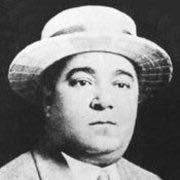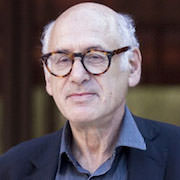The Merry Macs were an American close-harmony pop music quartet active from the 1920s till the 1960s and best known for the hits "Mairzy Doats", "Praise the Lord and Pass the Ammunition" and "Sentimental Journey". The group also sang on recordings with Bing Crosby.
Formed to play proms in Minneapolis, Minnesota, the group originally consisted of the three McMichael brothers: tenors Judd (1906–1989) and Joe (1916–1944), and baritone Ted (1908–2001). They were discovered by organist-bandleader Eddie Dunstedter of station WCCO, who suggested they perform in masks and dubbed them The Mystery Trio.
In 1931–'32 the McMichaels toured with the orchestra of arranger-composer Joe Haymes, who renamed them The Personality Boys. By 1933 they added a female lead singer, Cheri McKay, and changed their name to The Merry Macs. At Haymes' recommendation, Victor Records engaged the group for one single that year, their first recording.
In 1936 they appeared on several national radio programs, and Cheri McKay was replaced by Helen Carroll. (McKay trained her successor in the group's singing style.) Another record session followed with Ray Noble's orchestra. The Merry Macs started appearing with Fred Allen on Town Hall Tonight starting on November 17, 1937. In September 1938, they signed a contract with Allen for the 1938–1939 season, and they remained until the end of the 1940 season.
Vocal quartets had customarily harmonized like barbershop quartets. The Merry Macs revolutionized vocal harmony with closer harmonic chords. This style inspired other groups, like The Modernaires and Six Hits and a Miss. In 1938 The Merry Macs signed with Decca Records and recorded "Pop Goes the Weasel". The Merry Macs (with Carroll) sang a swing version of "Down by the Old Mill Stream" in the 1939 Vitaphone musical Seeing Red, Red Skelton's first film.
In 1939 Mary Lou Cook (1910-1944) replaced Helen Carroll. This is the foursome that most listeners know from film appearances. The McMichael brothers and Cook appeared as a specialty act in Hollywood movies, including 1940's Love Thy Neighbor, and Universal Pictures gave The Merry Macs their own feature-film series in 1941. Their most famous film is Ride 'Em Cowboy (1942), an Abbott and Costello comedy in which The Merry Macs offer musical interludes. At the time, Cook was married to actor Elisha Cook, Jr.; she ended both her marriage and her affiliation with The Merry Macs at about the same time.
Marjory Garland (1923–1991) replaced Mary Lou Cook after Ride 'Em Cowboy was filmed. The Merry Macs continued to score on the hit parade; their version of "Mairzy Doats" was a best-seller. Garland, who later married Judd McMichael, remained with the group until the 1960s. Imogene Lynn was the group's female lead singer in 1946–1947.
Youngest brother Joe McMichael served in the armed forces and was killed in 1944. He was replaced by Clive Erard, then Dick Baldwin, and finally Vern Rowe. The foursome of Judd, Ted, Marjory and Vern continued performing until they retired from show business in 1964.
